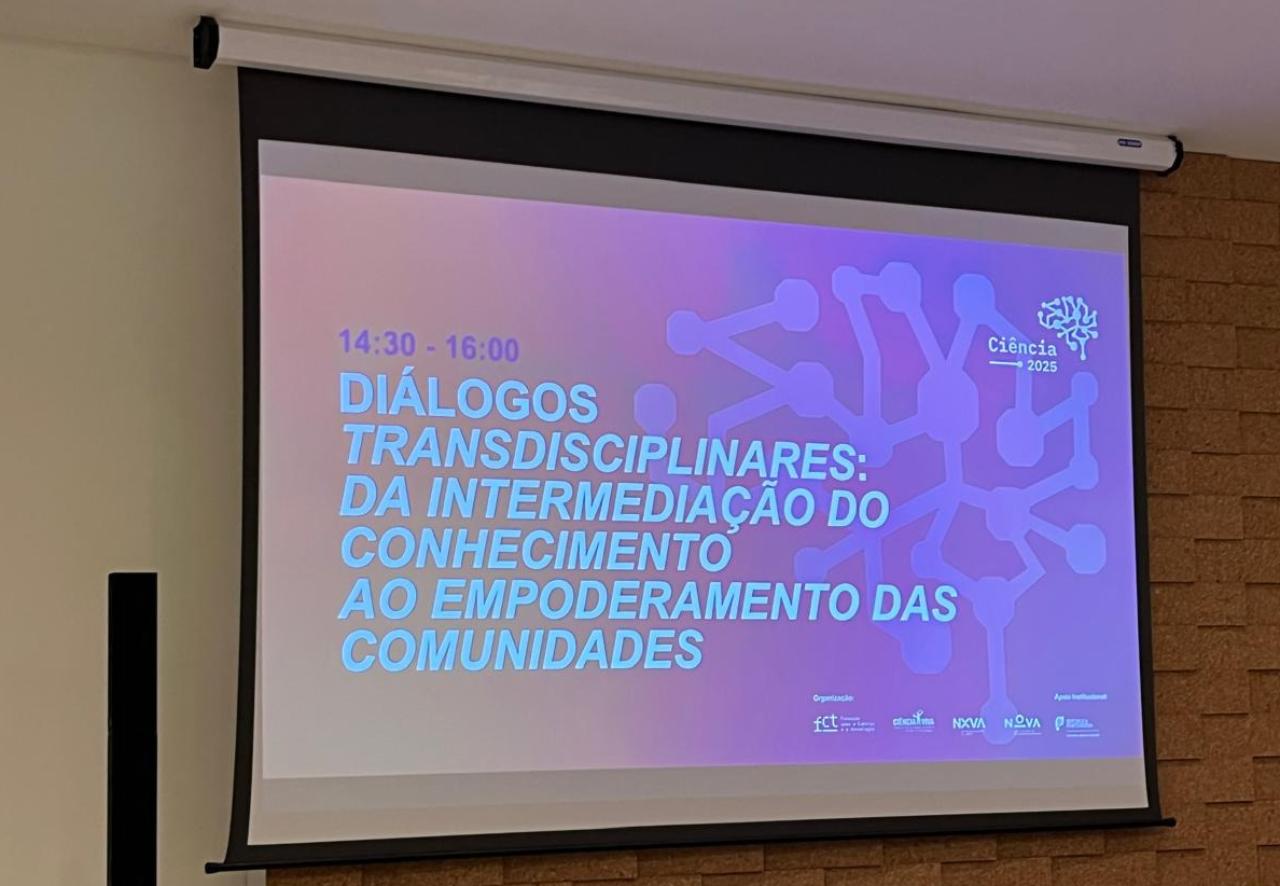
CHANGE was actively present at the Science 2025 Meeting, from July 9 to 11, at the Nova SBE campus in Carcavelos.
In partnership with the Institute of Social Sciences of the University of Lisbon (ICS-ULisboa), CHANGE hosted the session Transdisciplinary dialogues: from knowledge brokering to community empowerment. Moderated by Teresa Pinto Correia (director of CHANGE and researcher at MED-UÉvora), the panel included interventions by João Afonso Batista and Antje Disterheft (ICS-ULisboa), Pedro D'Orey Manoel (owner and manager of Montado, representative of Ovicharol) and Miguel Macias Sequeira (CENSE & CHANGE/NOVA). Researchers and members of civil society took part in an open and inspiring debate on the challenges and opportunities of co-producing knowledge in contexts of transition to sustainability.
The question of How to empower end users to become active players in the co-construction of knowledge was at the center of the discussions, promoting dialogue between disciplines, knowledge and contexts of action. The focus was on collaborative practices that actively involve communities and end-users in building solutions, with concrete examples linked to actions promoted under the European Green Deal, energy communities, the Montado system through the Montado Living Lab and work on ocean scientists.
The diversity of speakers made it possible to cross academic perspectives, practical experiences and strategies for brokering knowledge, stimulating reflection on new ways of doing science with and for society. The producers praised the co-creation of measures and the fact that research contributes to helping solve problems that arise and how these actions can influence public policies. The need for a balance between economic, environmental and social sustainability was also mentioned.
In addition to this session, CHANGE was represented at other sessions of the Science 2025 Meeting, reaffirming its commitment to international cooperation, socio-ecological resilience and participatory science. Cristina Máguas was involved in a session dedicated to scientific cooperation with the Global South, in which she presented the ProMel project taking place in Mozambique and underlined the need for partnerships and collaborations to tackle common challenges. In a session moderated by Tiago Capela Lourenço on the impacts of climate change, Cristina Branquinho highlighted the importance of promoting socio-ecological resilience. Cristina Luís contributed to the reflection on the role of citizen science in the construction of public policies and the valorization of knowledge produced in conjunction with society. She also took part in a discussion on the importance of making the public space more open to science, promoting dialog between researchers and citizens.





